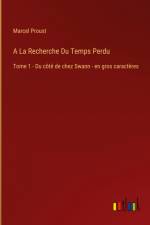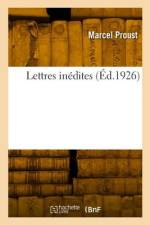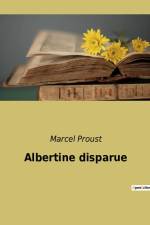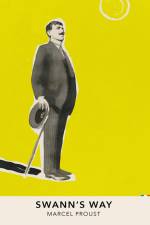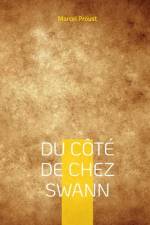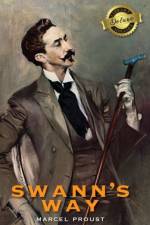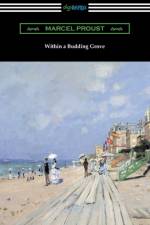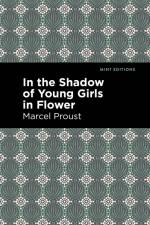av Marcel Proust
249
L'incipit d'Albertine disparue, contient en germe le noeud du drame : à l'annonce de Françoise, la domestique du narrateur, « « Mademoiselle Albertine est partie ! » répond ce constat du Narrateur « Comme la souffrance va plus loin en psychologie que la psychologie ! ». En effet, Albertine disparue constitue une analyse de la souffrance amoureuse, qu'atténue lentement - « dans le temps » - le travail du deuil et de l'oubli.Dans le chapitre I, le narrateur essaie pourtant de faire revenir Albertine chez lui par tous les moyens après le départ de celle-ci (il feint l'indifférence, envoie son influent ami Saint-Loup, promet à Albertine l'achat d'un yacht et d'une Rolls-Royce, etc). Mais tous ses efforts sont vains ; Albertine en effet meurt dans un accident de cheval (cet épisode n'est pas sans rappeler, toutes proportions gardées et sans tomber dans le biographisme que récuse Proust, la mort d'Alfred Agostinelli, secrétaire et amant de Proust, lui aussi prisonnier, fugitif, puis disparu dans un accident d'avion). Le narrateur apprend par la suite qu'Albertine s'était décidée à revenir vivre auprès de lui. L'oubli fait alors progressivement son oeuvre dans la vie du narrateur, atténuant sa souffrance.Au début du chapitre II, le narrateur revoit, sans la reconnaître de prime abord, Gilberte Swann, son ancien amour de Combray, devenue Mlle de Forcheville par adoption. Cette rencontre prend d'autant plus de force que le narrateur n'hésite pas à comparer son oubli progressif et définitif de Gilberte (quand il était plus jeune) à celui qui le menace quant à Albertine. De fait, à la fin du chapitre II, son amour pour Albertine n'est plus ; il peut désormais partir pour Venise, puisque seule la présence (réelle ou virtuelle) d'Albertine l'en empêchait.Le récit se poursuit donc à travers l'évocation d'un voyage à Venise. Ce séjour représente pour le narrateur comme un dernier adieu à la jeunesse et aussi, d'une certaine façon, à sa mère, à travers l'épisode qui clôt le chapitre III : le narrateur, intéressé par la baronne Putbus, refuse de partir avec sa mère, mais finit par la rejoindre in extremis à la gare. C'est aussi une magnifique évocation poétique de la Cité des Doges (lire par exemple la description des fresques de Saint-Marc longuement contemplées par le narrateur, et qui lui rappellent une robe portée par Albertine).




